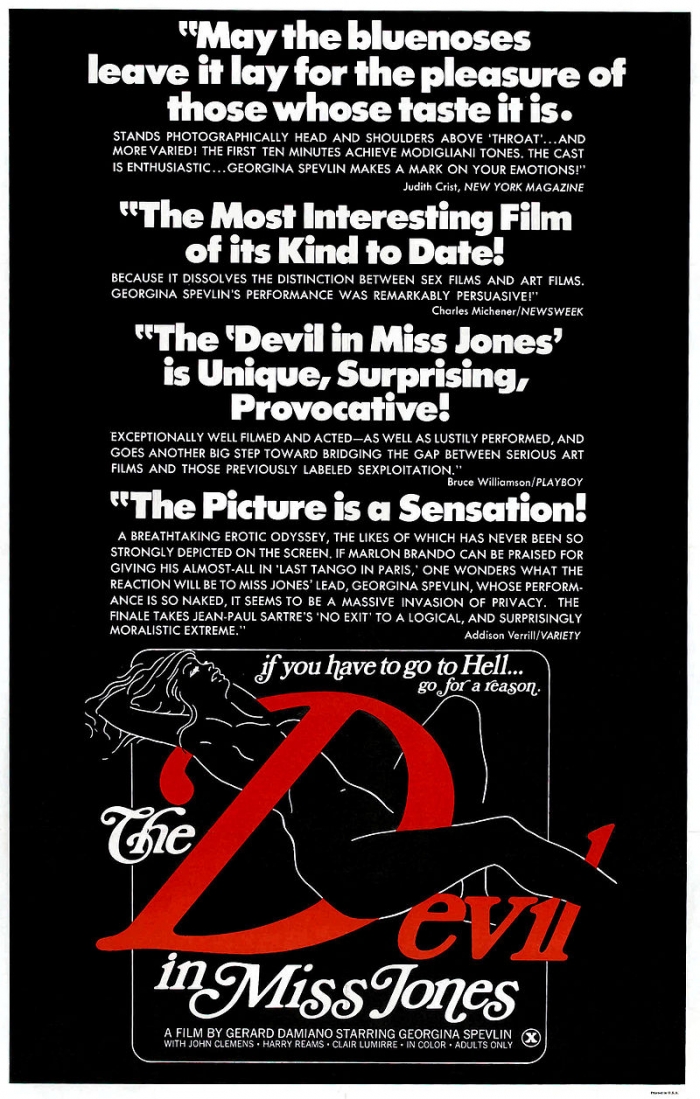Like its predecessor Deep Throat (1972), Gerard Damiano’s follow-up film The Devil in Miss Jones (1973) led to obscenity charges throughout the United States. Damiano’s films were key in the adult film industry’s quest to be treated as art protected by the First Amendment rather than as pornography, which can be deemed obscene and therefore prosecuted.
Convictions of filmmakers were overturned and obscenity statutes were struck down
Although many of the people involved in making and exhibiting The Devil in Miss Jones were arrested, tried, and sometimes convicted of violating federal, state, and local obscenity laws, their convictions were overturned on appeal and the obscenity statutes they were tried under were declared invalid on free speech grounds. For example, a Massachusetts obscenity law was struck down after litigation involving a theater owner’s showing of the film.
Like many adult films, this one was derived from an earlier movie: the 1941 RKO comedy The Devil and Miss Jones starring Jean Arthur and Charles Coburn. A number of respected film critics applauded Damiano’s version, despite its numerous explicit sex scenes. Still, Damiano’s success was largely driven by publicity generated from obscenity litigation. After The Devil in Miss Jones played in Memphis, Tenn., for example, Assistant U.S. Attorney Larry Parrish indicted everyone he could in connection with the film. Similarly, after a New York City court declared Deep Throat to be obscene and it was subsequently banned in twenty-three states, one of the film’s stars, Harry Reems, was indicted by Parrish and convicted of obscenity in federal court. But Reems, like the others who were prosecuted by Parrish, had their convictions overturned on appeal.
The Devil in Miss Jones spawned numerous sequels, none of which was as popular or critically acclaimed as the original—and none of which appears to have provoked obscenity suits.
This article was originally published in 2009. Artemus Ward is professor of political science faculty associate at the college of law at Northern Illinois University. Ward received his Ph.D. from the Maxwell School of Citizenship & Public Affairs at Syracuse University and served as a staffer on the House Judiciary Committee. He is an award-winning author of several books of the U.S. Supreme Court and his research and commentary have been featured in such outlets as the New York Times, Los Angeles Times, Associated Press, NBC Nightly News, Fox News, and C-SPAN.

